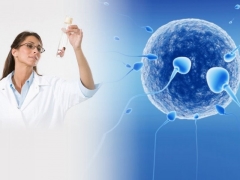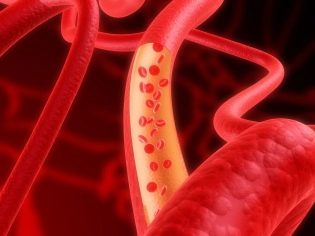The effects of nicotine and alcohol on IVF success
If in vitro fertilization is expected for a couple, all future parents are interested in increasing the success of the upcoming procedure. Everything becomes important: what to eat, what to drink, is it possible to smoke and take alcohol? We will try to tell about the effect of nicotine and alcoholic beverages on the outcome of IVF in this material.
Smoking
Systematic tobacco use causes tissue hypoxia of all organs and systems of the female body. Vessels are narrowed, tissues are worse filled with blood. Especially not even the lungs and bronchi, as is commonly thought, suffer, but the ovaries and uterus. Namely, the normal state of these organs is important for pregnancy planning in general and successful IVF in particular.
The probability of successful implantation of embryos depends on how well the inner epithelial layer of the uterus is supplied with blood. At the stage of stimulating the activity of the ovaries, smoking a woman can minimize the efforts of doctors. Hormone therapy is aimed at the maturation of the eggs, and nicotine reduces the amount of sex hormones, inhibits their synthesis and minimizes the response of the ovaries to stimulation.
The resulting eggs in the end, according to statistics, do not meet the quality requirements. Their shells often become more dense, which complicates the fertilization process and may require another procedure, ICSI, to insert the sperm cell with a thin needle directly under the oocyte membrane.
Many hormonal agents used at the stage of ovarian stimulation, and then after embryo transfer, have a clearly formulated contraindication - smoking. Drug manufacturers are not at all crafty: nicotine and tar contained in tobacco smoke react ambiguously with hormones, the effectiveness of therapy in 70% of cases is significantly reduced. But that's not all - nicotine in combination with the hormones used can cause hemostasis disorders and the development of thromboembolism, varicose veins, and strokes.
Smoking after embryo replanting increases the risk of pathology of the placenta. She can form with violations, a woman can be threatened by her premature aging and detachment. Thus, all efforts can be negated, because the baby (or toddlers) who, despite everything, managed to settle down in the uterus, can die from acute or chronic hypoxia. Carrying a baby after IVF is already a rather risky event. A smoker after IVF increases the risk of delaying the development of the fetus, giving birth to a child with anomalies tenfold, as well as the risks of premature birth, miscarriage in earlier periods.
It is advisable to quit smoking not even before the IVF procedure, but six months before it, so that the body has time to clear itself of the negative impact.
To improve the quality of the eggs of the former smoker, it is desirable to pre-pass the appropriate treatment.
Alcohol
If a woman uses alcohol systematically, it’s quite difficult to call her egg stock healthy and full. New precursors of oocytes are not formed, their number is determined for the whole life from the moment the girl is born. Alcohol affects these cells destructively. And even if a woman does not drink at the time of preparation for IVF, the quality of her oocytes leaves much to be desired.
If not only mom drinks, but dad drinks, then the quality of biological material from both sides is unsatisfactory.Such a couple should quit a bad habit, undergo a long course of recovery (especially for a man), and only then go to a doctor with a question about IVF.
Specialists of the European Union reproduction are firmly committed to making alcohol in doses above the average in the list of contraindications to reproductive techniques, since the probability of successful IVF for a woman who is not averse to drink is only 15%, and the probability of successful gestation does not exceed 8%. The probability of having a healthy child is reduced tenfold compared with parents who do not take alcohol.
If you drink alcohol immediately before the IVF procedure, you can negate the efforts of fertility specialists. Toxins and substances of disintegration of ethyl alcohol in the body reduce the likelihood of successful implantation of transferred embryos. Blood pressure rises, which affects blood circulation and the likelihood of carrying babies.
Reviews
Women planning IVF rarely talk about their addiction. Shy, afraid of public condemnation. But some reviews allow us to conclude that quit smoking before entering into the protocol, become pregnant faster than women who do not want to part with cigarettes for 2,3,4 and even 5 protocols of IVF.
Alcohol in small doses is not considered by most of the women to be a hindrance to successful IVF, and for good reason. A closer analysis of the reviews shows that women who allow themselves at least a glass of wine a week at the planning stage of pregnancy and with ovarian stimulation, even with successful IVF, suffer pregnancy - they have a constant threat of miscarriage, there are problems with the localization and functioning of the placenta.
For information on how nicotine and alcohol affect the body and future offspring, see the next video.





















